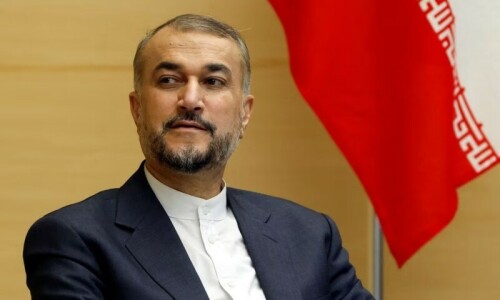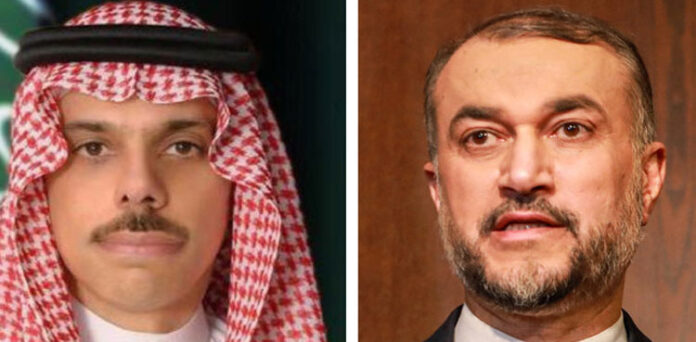ISLAMABAD: Iranian Foreign Minister Hossein Amir-Abdollahian arrived in Riyadh, marking his first official visit to Saudi Arabia on Thursday, since a significant reconciliation in March.
A Chinese-mediated agreement facilitated the restoration of diplomatic relations and the reopening of their respective embassies between the longtime rivals. Iran and Saudi Arabia severed ties in 2016 following attacks on Saudi diplomatic missions in the Islamic Republic during protests against Riyadh’s execution of Shia cleric Nimr al-Nimr.
Amir-Abdollahian was welcomed at Riyadh Airport a short while ago for a one-day trip and received by Saudi Arabia’s deputy foreign minister.
The purpose of the visit is to address bilateral relations and Regional and International matters. Amir-Abdollahian was scheduled to hold discussions with his Saudi counterpart and other officials in the kingdom.
Accompanying the minister was the newly appointed Iranian ambassador to Saudi Arabia.
In May, state media revealed that Tehran had designated Alireza Enayati, a former ambassador to Kuwait, as the Islamic Republic’s envoy to Saudi Arabia.

Mending relations
Prince Faisal bin Farhan, the Saudi foreign minister, visited Iran in June, becoming the first Saudi foreign minister to do so since 2006. Earlier in the same month, Iran reopened its embassy in Riyadh with a flag-raising ceremony.
On the sidelines of a security conference in Moscow on Wednesday, military officials from both countries held discussions, as reported by Iranian state media.
Amir-Abdollahian, during this week, conveyed that the new ambassador to Riyadh was accompanying him on Thursday’s visit to “officially commence his mission.”
As of August 9, Iran announced the commencement of operations at the Saudi embassy in Tehran, although Riyadh has yet to confirm this.
For years, Iran and Saudi Arabia have supported opposing factions in conflicts across the Middle East. In recent months, Iran has been actively engaging in diplomatic initiatives, seeking closer relations with other Arab nations in an effort to alleviate its isolation and enhance its economy.
Since the March agreement, Saudi Arabia has reestablished ties with Syria, an Iranian ally, and intensified efforts for peace in Yemen. The country has led a military coalition against Iran-backed Huthi forces in Yemen for several years.
The Islamic Republic has been grappling with severe US sanctions since the United States’ withdrawal from a landmark nuclear deal in 2018, during the tenure of then-president Donald Trump.


